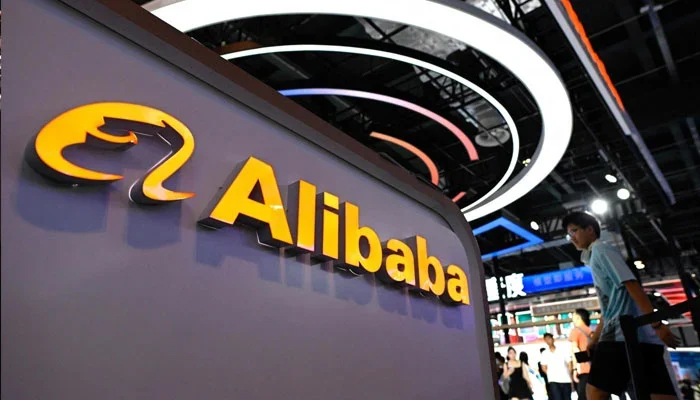Alibaba chief takes direct control of under-pressure Chinese business
Hong Kong: Alibaba chief Eddie Wu has strengthened his grip on the sprawling tech conglomerate, reshuffling management once again to take direct charge of its core ecommerce business as it loses market share to rivals PDD Holdings and ByteDance.
At the end of a year of restructuring, executive changes and strategy reversals at the Chinese company, Wu is now chief executive of Alibaba’s ecommerce unit, as well as chief of its cloud division and group CEO, roles he only assumed in September.
Wu had unexpectedly taken leadership of the cloud business, overturning a succession plan through which departing group chief executive Daniel Zhang was to head up the unit. The Financial Times reported in November that Wu had pushed him out.
“It is clear there has been a lot of tension internally between the contending factions. This move should unify things,” said Duncan Clark, founder of the Beijing-based BDA China consultancy and author of Alibaba: The House That Jack Ma Built.
On Wednesday, the group announced Wu was replacing longstanding executive Trudy Dai as chief executive of the Taobao and Tmall ecommerce platforms. Together, the platforms provide the country’s largest online shopping services, but they have been steadily losing market share to Temu and Pinduoduo owner PDD Holdings, and ByteDance’s Douyin, the Chinese version of TikTok.
Dai is being moved to help form a new asset management company, according to the group. Alibaba has previously said that it would invest in a new $1bn tech fund founded by Zhang.
Group chair Joseph Tsai, who took over the role from Zhang in September, said on Wednesday that “a new era requires a new strategic and organisational change”. He added: “I believe Alibaba will complete its transformation after undergoing this round of changes.”
In March, Alibaba announced it was splitting into six business units, with some targeting separate initial public offerings, in a bid to “unleash shareholder value” as China emerged from zero-Covid era restrictions. Alibaba’s shares have sunk by around 75 per cent since its peak three years ago, just before Beijing intervened to cancel the US listing of affiliate Ant Financial.
Alibaba’s restructuring plan was initially met with investor enthusiasm, which faded with growing pessimism about China’s economic recovery. Last month, Alibaba ditched plans to separate its cloud business, citing new US restrictions on crucial semiconductors. It also put the IPO of its supermarket business on hold.
During his first investor call as chief executive in November, Wu pitched the cloud business as the group’s future growth driver, pledging to invest in artificial intelligence to bolster its core ecommerce business.
“Alibaba needs to first fix the ecommerce business and integrate with cloud. It’s unclear how they will do this, but the cloud business is important in the run-up to an AI world,” said Clark.
Alibaba’s share price rose as much as 4.3 per cent in Hong Kong on Wednesday following news of the management changes. Once Asia’s most valuable company, Alibaba was overtaken in market capitalisation by its rival PDD in the past month.
-
 Chinese New Year Explained: All You Need To Know About The Year Of The Horse
Chinese New Year Explained: All You Need To Know About The Year Of The Horse -
 Canadian Passport Holders Can Now Travel To China Visa-free: Here's How
Canadian Passport Holders Can Now Travel To China Visa-free: Here's How -
 Glen Powell Reveals Wild Prank That Left Sister Hunting Jail Cells
Glen Powell Reveals Wild Prank That Left Sister Hunting Jail Cells -
 Edmonton Weather Warning: Up To 30 Cm Of Snow Possible In Parts Of Alberta
Edmonton Weather Warning: Up To 30 Cm Of Snow Possible In Parts Of Alberta -
 'A Knight Of The Seven Kingdoms' Episode 5: What Time It Airs And Where To Stream
'A Knight Of The Seven Kingdoms' Episode 5: What Time It Airs And Where To Stream -
 Amy Schumer Drops Cryptic Message On First Valentine Amid Divorce
Amy Schumer Drops Cryptic Message On First Valentine Amid Divorce -
 Savannah Guthrie Sends Desperate Plea To Mom Nancy Kidnapper
Savannah Guthrie Sends Desperate Plea To Mom Nancy Kidnapper -
 NBA All-Star 2026 Shake-up: Inside The New USA Vs World Tournament Format
NBA All-Star 2026 Shake-up: Inside The New USA Vs World Tournament Format -
 Warner Bros Consider Reopening Deal Talks With Paramount, Says Reports
Warner Bros Consider Reopening Deal Talks With Paramount, Says Reports -
 Andrew Mountbatten Windsor Faces Future With UK MPs, Says Expert
Andrew Mountbatten Windsor Faces Future With UK MPs, Says Expert -
 Eva Mendes Shared Bedroom Photos For Ryan Gosling On Valentine’s
Eva Mendes Shared Bedroom Photos For Ryan Gosling On Valentine’s -
 Shamed Andrew Told 'nobody Is Above The Law' Amid Harrowing Silence
Shamed Andrew Told 'nobody Is Above The Law' Amid Harrowing Silence -
 Gisele Bundchen Melts Hearts With Sweet Bike Ride Glimpse Featuring Son
Gisele Bundchen Melts Hearts With Sweet Bike Ride Glimpse Featuring Son -
 Prince William Found Meghan Markle ‘quite Refreshing’ At Start
Prince William Found Meghan Markle ‘quite Refreshing’ At Start -
 Kate Middleton Knew Should Could Not Be ‘voice Of Reason’ With Prince Harry
Kate Middleton Knew Should Could Not Be ‘voice Of Reason’ With Prince Harry -
 Rihanna Has Wardrobe Malfunction At A$AP Rocky Fashion Show
Rihanna Has Wardrobe Malfunction At A$AP Rocky Fashion Show




